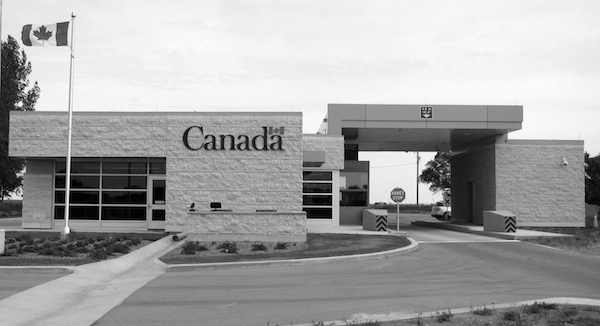It’s time for back to basics for business visitors entering Canada

It has been a long summer and I have been remiss in not offering commentary on the trends and issues over the last few months. The one theme that has crossed my desk too often lately is the poorly documented and ill-prepared business visitor.
In the old days (and for traditional stalwarts ☺) standard cross-border protocol for business visitors is to carry a letter of invitation or letter of introduction from their Canadian host to explain the purpose of entry, duration of stay and provide clarity in regard to activities to be undertaken in Canada. Now that everyone carries and uses cellular phones for personal and business communications, the cell phone has become the target for CBSA port of entry officers seeking information on the purposes of an applicant’s entry.
The old fashioned letter serves to provide readily available information for the CBSA, without a visitor having to thumb through their phone to prove the purpose of entry. Once the cell phone is presented as the device carrying records related to entry, the CBSA views the phone as a device worthy of examination to assist them in determining purpose of entry. CBSA is now routinely checking cell phone communications and emails. An expectation of privacy vis-a-vis business communications available on the cell phones presented at the port of entry, has gone by the wayside. This is especially true when the applicants themselves pull out their phones to retrieve data to attest to their business activities in Canada. Note that CBSA currently has the authority to search your phone and its contents, including your email and text messages, even if you don’t present the phone to them as a source of proof.
The best way to prevent an examination of a business visitor’s cell phone communications is to prepare a thorough letter of invitation that sets out all of the information required for the CBSA to make their assessment on admissibility as a business visitor. If a business visitor has a prospective job opportunity in Canada, confirm this in the letter. Until the offer of employment is in place and the related approvals have been granted, it is completely justifiable for a prospective employee to enter Canada as a visitor to interview in Canada, meet company representatives, negotiate the terms of the offer and consult legal counsel. As long as the applicant is upfront and transparent about the purposes of their entry, gaining admission to Canada as a business visitor is relatively straightforward. However, it does take preparation.
Over the last few months we have seen increased enforcement measures initiated for those business visitors who are not well documented. The CBSA are doing their job and a business visitor must be prepared to respond to their questions, otherwise your cell phone will do it for you. The CBSA has been recruiting new officers for some time now and many of these newly trained officers are on the front line assessing well-travelled business visitors. Going back to basic principles is good for applicants and helps port of entry officers make their decisions quickly and without much effort.
The time and effort required to prepare a business visitor for entry to Canada may seem overly cautious for Canadian companies, however, it is worth it as it prevents the business visitor being turned away or from having a mark noted on their immigration record impacting future visits to Canada. If this summer is any indication, this is an area where Canadian companies have to get back to basics, preparing hard copy letters for all those genuinely entering Canada for business related activities to present upon their arrival.
If an applicant wants to ensure that the contents of their cell phone are not searched by the CBSA, it should be left at home.